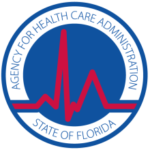
The Agency for Health Care Administration Secretary Mary Mayhew today announced new details regarding the Housing Assistance Pilot Program. The pilot program will operate in Pinellas, Pasco, Seminole, Orange, Osceola, and Brevard counties and will begin operations December 1, 2019. The Agency’s goal with the housing assistance pilot is to facilitate housing stability and improve health outcomes for the up to 4,000 Medicaid recipients that can be served annually.
In April, the Agency announced that federal approval had been granted to allow AHCA to create a Housing Assistance Pilot Program as part of the Florida Medicaid program. For the full April announcement click here.
Secretary Mayhew said, “On behalf of Governor DeSantis, I am excited to announce a bold new direction for Florida’s Medicaid program as we work to support individuals with serious mental illness (SMI) and substance use disorders (SUD) with supportive housing services. In partnership with community providers, our Agency through selected managed care plans, will address a major social determinant of health for individuals with mental illness or substance use disorder by focusing on efforts to support stable housing to improve their health outcomes and reduce preventable hospitalizations”
The following health plans will participate in the pilot program:
- Aetna
- Magellan
- Simply
- Staywell
Health plans will provide the following services to qualified enrollees:
- Transitional housing services – designed to prepare and support the transition into permanent housing.
- Tenancy sustaining services – supports the individual in being a successful tenant.
- Mobile crisis management – established to provide immediate, on-site de-escalation of issues when crises occur.
- Self-help/peer support – designed to allow individuals to work with peer support specialists to help manage SUD or SMI symptoms and promote community living skills.
- One-time payment for moving expenses – assists with incidental expenses
The Agency has established robust performance metrics in collaboration with stakeholders to measure the success of the pilot in achieving our goals, including obtaining stable and permanent housing and achieving better health outcomes such as reduced hospital admissions and emergency department visits. We are excited to have another tool to increase access and help support people managing serious mental illness and substance use disorders.
To evaluate the success, the Agency will measure the following performance metrics:
- Percentage of participants who achieved housing permanency
- Percentage of participants whose days of homelessness were reduced (when applicable)
- Percentage of participants diagnosed with a SUD receiving medication assisted treatment
- Percentage of participants diagnosed with an SMI who are compliant with medication management requirements
- Percentage of reduced emergency department and inpatient hospital use among participants
